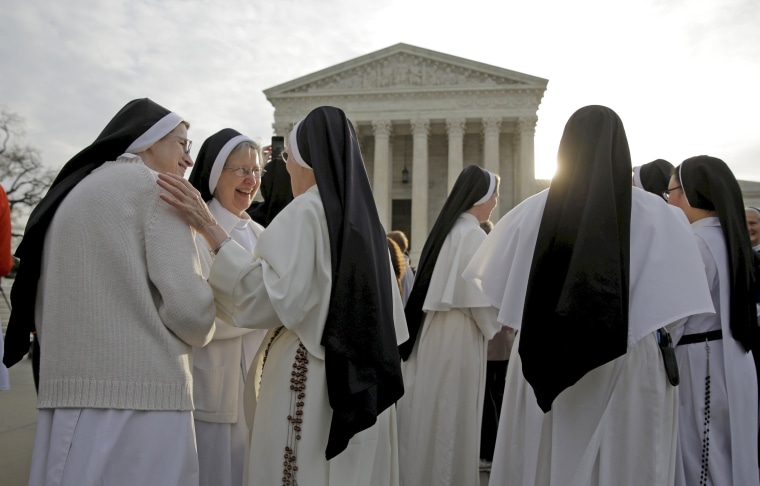The Trump administration, fresh off one anti-Obamacare victory, plans to target another controversial provision of the law: the birth control mandate.
The House voted to approve a bill that would replace much of the Affordable Care Act, but the birth control moves come from another action: President Donald Trump’s executive order on religious freedom.

Health and Human Services Secretary Tom Price said Thursday he welcomed the executive order. “We will be taking action in short order to follow the President’s instruction to safeguard the deeply held religious beliefs of Americans who provide health insurance to their employees,” Price said in a brief statement.
He did not say what that action would be.
“Religious liberty is our country’s first freedom. Americans of faith play a vital role in caring for our most vulnerable citizens, including the elderly and the poor,” Price added.
But the issue of religious liberty has been at the heart at some of the most high-profile lawsuit against the Affordable Care Act, which includes coverage of all forms of birth control as one of its “essential services.”
Related: Most Americans Support Birth Control Mandate
“This has been the most controversial single issue presented by the ACA, other than the individual mandate. It has spawned about a hundred lawsuits, which tied up the Obama administration for half a decade,” Timothy Jost, an emeritus professor at the Washington and Lee University School of Law, wrote in a blog post.
Some furious conservatives have said they do not want to pay for someone else’s birth control, while liberals call it a basic right and health policy experts point out that it is cheaper to pay for birth control than it is to pay for a pregnancy.
Related: SCOTUS Sends Obamacare Contraception Case Back to Lower Courts
But the arguments that have had the most traction in federal courts have been those made by religious groups who say it’s against their beliefs to provide birth control to employees.
Churches and strictly religious organizations are already exempt from the requirement.
Trump’s executive order gives "regulatory relief" to employers who object to the mandate. It’s a specific reference to the 2014 Hobby Lobby Supreme Court case, which forced the Obama administration to work out a deal under which others who object can get a third party to do the paperwork and make payments for birth control coverage.
A Catholic order, the Little Sisters of the Poor, were plaintiffs in another suit that went all the way to the Supreme Court and Trump invited some members onstage for the signing of his executive order.
Related: Yes,You Have to Pay for Birth Control, Feds Say
The HHS statement signals the new administration wants to take things further.
That’s delighted religious groups and anti-abortion rights activists but angered pro-choice and women’s health advocates.
“The ‘religious freedom’ pretext President Trump used to justify his executive action is simply a smoke screen to allow big businesses run by religious special interests to discriminate, deny women basic healthcare provisions like birth control and openly impose their religious and political views on others,” said Jon O’Brien, president of Catholics for Choice.
“This executive order is not about protecting religious liberty — it is a direct attack on women’s access to birth control,” Planned Parenthood Executive Vice President Dawn Laguens said in a statement. “A woman’s health should not be up to her boss or politicians.”
Related: Contraception Fell, Medicaid Births Rose When Texas Defunded Planned Parenthood
Jost, an expert on healthcare policy and law, doesn’t think it’s likely HHS will take any extreme action.
“HHS could, through notice and comment rulemaking, conclude that contraceptives are not a women’s preventive service that must be covered by insurers, but it has not done so, and to do so would be politically and legally risky,” he wrote.
“Finally, it is unlikely that the Trump administration will require insurers to offer coverage that does not include contraceptives. It may be that some employers and individuals will seek to purchase coverage that does not include contraceptives, but that no such coverage will be available for them to purchase. It is unlikely that a new rule will change this.”

